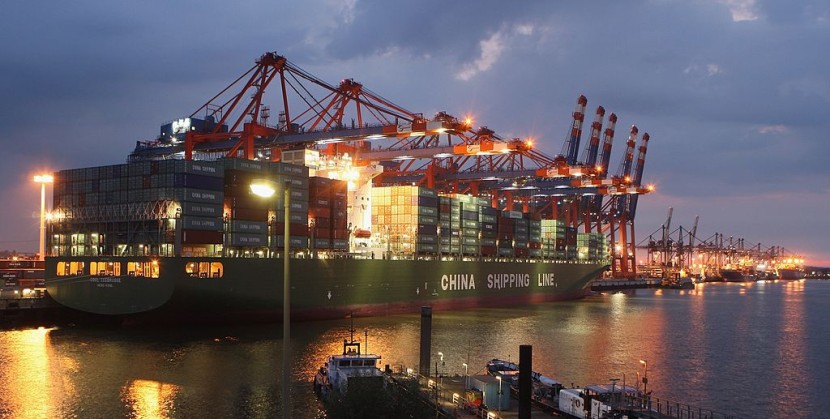
China's exports fell 14.5% in July compared to the same month last year, adding to the pressure on the country's Communist Party to stop the economic downturn.
Customs data released on Tuesday revealed a 12.4% decline in imports, dealing a blow to international exporters who view China as one of the main marketplaces for consumer goods, food, and industrial supplies, as per VOA News.
China's Exports and Imports Drop
Exports decreased to $281.8 billion as the downturn from June's 12.4% decrease quickened. Following a 6.8% decline in the previous month, imports plunged to $201.2 billion. The nation's $80.6 billion global trade surplus decreased by 20.4% from a record high a year ago.
Following an earlier-than-anticipated recovery following the end of viral controls in December, Chinese policymakers are attempting to support industry and consumer activity. From 2.2% in the months of January to March, economic growth slowed to 0.8% in the three months that ended in June.
That translates to 3.2% annual growth, which would be some of China's weakest in the last thirty years. Once the US Federal Reserve and central banks in Europe and Asia started hiking interest rates last year to reduce inflation, which was at multidecade highs, demand for Chinese goods decreased.
The global economic landscape continues to exhibit signs of turbulence as China grapples with a significant decline in its exports, marked by its sharpest drop since the onset of the COVID-19 pandemic in 2020.
According to Capital Economics, this decline is primarily attributed to plummeting prices rather than a decline in the volume of exported items, and it underscores the complex interplay of factors influencing international trade.
While the volume of exported items has actually surpassed pre-pandemic levels, the pronounced reduction is a result of lower prices across the spectrum of goods.
Capital Economics, in its recent report, predicts a further decline in exports over the next few months, with a potential bottoming-out towards the year's end. This forecast is framed within the context of an ongoing challenging outlook for consumer spending within developed economies.
China's ruling party has signaled intentions to support entrepreneurs, incentivize home purchases, and stimulate consumer spending. However, it has not yet announced extensive stimulus measures or tax cuts. While such measures might reignite demand for imports, experts anticipate that the revival will be gradual, mirroring the broader economic climate.
David Chao of Invesco noted in a report that domestic demand is continuing to erode. He points to policymakers' pledges for additional support, which could aid household spending and subsequently lead to an improvement in import growth over the coming months. A closer examination of China's trading partners reveals notable shifts.
Exports to the United States experienced a substantial 23% year-on-year decline, reaching $42.3 billion, according to the New York Times.
China's Dynamics with US, Russia, and EU
Simultaneously, imports of American goods declined by 11.1% to $12 billion. China's trade surplus with the United States narrowed by 27% to $30.3 billion, highlighting the ongoing recalibration of trade dynamics between the two nations. Trade relations with Russia have also shown nuances. Imports from Russia, predominantly oil and gas, experienced a marginal 0.1% decrease from the previous year, settling at $9.2 billion.
China's procurement of Russian energy resources has played a role in offsetting the impact of Western sanctions imposed as a response to Russia's actions in Ukraine. China's relationship with Russia straddles a delicate balance as China maintains its stance of neutrality in the conflict while fostering closer economic ties with Moscow.
While China's purchases of Russian energy have remained largely unaffected by Western sanctions, concerns have arisen over potential military-use goods being shipped by China to Russia. The European Union (EU) has not escaped the effects of China's export downturn either. Exports to the EU saw a significant drop of 39.5% year-on-year, totaling $42.4 billion.
Imports of European goods followed suit with a decline of 44.1% at $23.3 billion. Consequently, China's trade surplus with the EU contracted by 32.7% to $19.1 billion, BBC reported.
Related Article: Poland's President Declares General Election on October 15
© 2026 HNGN, All rights reserved. Do not reproduce without permission.








